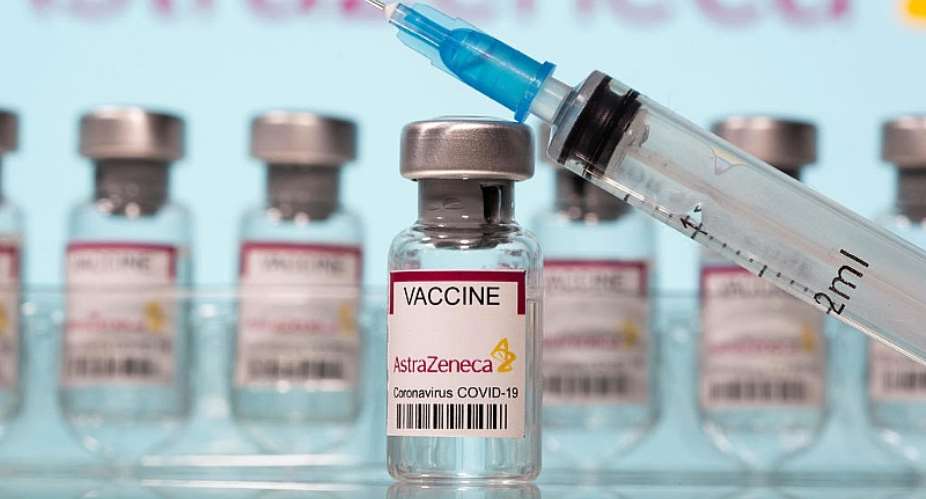Countries across Europe resumed vaccinations with the AstraZeneca shot on Friday, as leaders sought to reassure their populations it is safe following brief suspensions that cast doubt on a vaccine that is critical to ending the coronavirus pandemic.
France's prime minister rolled up his sleeve to get the vaccine and Britain's prime minister planned to, as did a handful of other senior politicians across the continent where inoculation drives have repeatedly stumbled and several countries are now reimposing lockdowns as infections rise in many places.
Britain is a notable exception: The outbreak there has receded, and the country has been widely praised for its vaccination campaign, though this week it announced that it, too, would be hit by supply shortages.
The UK also never stopped using AstraZeneca. European Union countries, by contrast, have struggled to quickly roll out vaccines, and the pause of the vaccine by many this week only added to those troubles.
Blood clots
The suspensions came after reports of blood clots in some recipients of the vaccine, even though international health agencies urged governments to press ahead with the shot, saying the benefits outweighed the risks.
On Thursday, the European Medicines Agency said that the vaccine doesn't increase the overall incidence of blood clots, though it could not rule out a link to a small number of rare clots.
The move paved the way for a slew of European countries including Italy, France and Germany to begin using the vaccine again.
“It's clear that the revocation of the suspension is for us a great relief because we have to strongly accelerate the vaccination campaign,” said Dr. Giovanni Rezza, the head of prevention at the Italian Health Ministry.
Rezza told reporters in Rome that Italy only reluctantly halted the campaign out of an abundance of caution, but needed to ramp it back up quickly to make up for lost time now.
Developing nations
He said Italy needed to more than double the 200,000 vaccinations per day the country had reached before the suspension to reach its goal of inoculating 80% of the population by September.
Health experts have expressed concern that even though the suspensions were brief, they could still damage confidence in the vaccine at a time when many people are already hesitant to take a shot that was developed so quickly.
While many EU countries have struggled with such reluctance, it's even more of a worry in developing nations that may not have any other choice of vaccine.
AstraZeneca, which is cheaper and easier to store than many rival products, is the linchpin in vaccination drives in many poorer countries.
Amid these concerns, several politicians got the shot Friday, including French Prime Minister Jean Castex; Slovenian President Borut Pahor and Prime Minister Janez Jansa; and a German state governor.
Long-lasting doubts
France restarted the vaccine with some restrictions that seemed aimed at reducing the risk of potential side effects even further.
Other countries that are resuming their use of AstraZeneca shots include Bulgaria, a nation of 7 million where only 355,000 people have been vaccinated with a first dose so far — the lowest number in the European Union.
But not everyone was as quick to return to the vaccine. Sweden, Norway and Denmark, which was the first country to pause using AstraZeneca, said they would wait another week before deciding whether to resume or not.
Finland decided to pause the vaccine for the first time Friday, saying it would suspend use for a week while it investigated two suspected cases of blood clots.
Though there are concerns that the pause may have sown long-lasting doubts, some were relieved that the vaccine was available again Friday.





 Meta releases new version of conversational AI across its platforms
Meta releases new version of conversational AI across its platforms
 Cape Town named Africa’s Best Airport 2024 by Skytrax
Cape Town named Africa’s Best Airport 2024 by Skytrax
 Bono East: Four injured after hearse transporting corpse crashes into a truck
Bono East: Four injured after hearse transporting corpse crashes into a truck
 ‘Be courageous, find your voice to defend our democracy’ — Sam Jonah urges journ...
‘Be courageous, find your voice to defend our democracy’ — Sam Jonah urges journ...
 Exodus of doctors, nurses and teachers have worsened because of unserious Akufo-...
Exodus of doctors, nurses and teachers have worsened because of unserious Akufo-...
 2024 election: Avoid insults, cutting down people in search of power – National ...
2024 election: Avoid insults, cutting down people in search of power – National ...
 ‘You passed through the back door but congratulations’ — Atubiga on Prof Jane Na...
‘You passed through the back door but congratulations’ — Atubiga on Prof Jane Na...
 Government’s $21.1 billion added to the stock of public debt has been spent judi...
Government’s $21.1 billion added to the stock of public debt has been spent judi...
 Akufo-Addo will soon relocate Mahama’s Ridge Hospital to Kumasi for recommission...
Akufo-Addo will soon relocate Mahama’s Ridge Hospital to Kumasi for recommission...
 We must not compromise on our defence of national interest; this is the time to ...
We must not compromise on our defence of national interest; this is the time to ...
